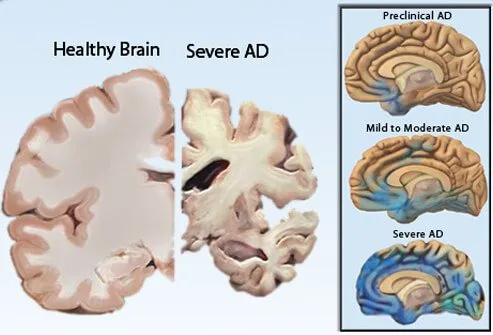Picture of Alzheimer's Disease

In the early stages of Alzheimer's disease, patients may experience memory impairment, lapses of judgment, and subtle changes in personality. As the disorder progresses, memory and language problems worsen and patients begin to have difficulty performing activities of daily living, such as balancing a checkbook or remembering to take medications. They may become disoriented about places and times, may suffer delusions (such as the idea that someone is stealing from them or that their spouse is being unfaithful), and may become short-tempered and hostile. During the late stages of the disease, patients begin to lose the ability to control motor functions such as swallowing, or lose bowel and bladder control. They eventually lose the ability to recognize family members and to speak. As the disease progresses it begins to affect the person's emotions and behavior and they develop symptoms such as aggression, agitation, depression, sleeplessness, or delusions. On average, patients with Alzheimer's disease live for 8 to 10 years after they are diagnosed. However, some people live as long as 20 years. Patients with Alzheimer's disease often die of aspiration pneumonia because they lose the ability to swallow late in the course of the disease.
Image Source: Alzheimer's Disease Education and Referral Center, National Institute on Aging
Text: "Alzheimer's Disease", MedicineNet